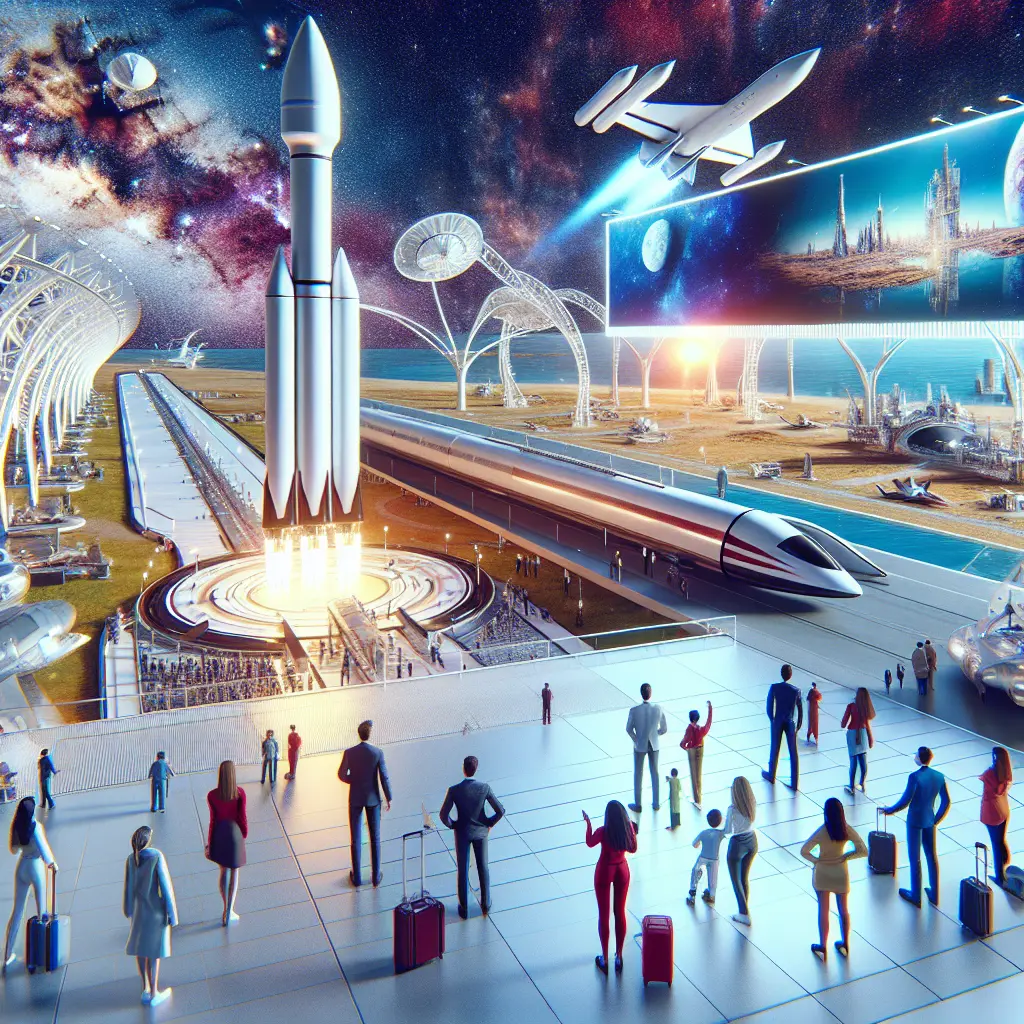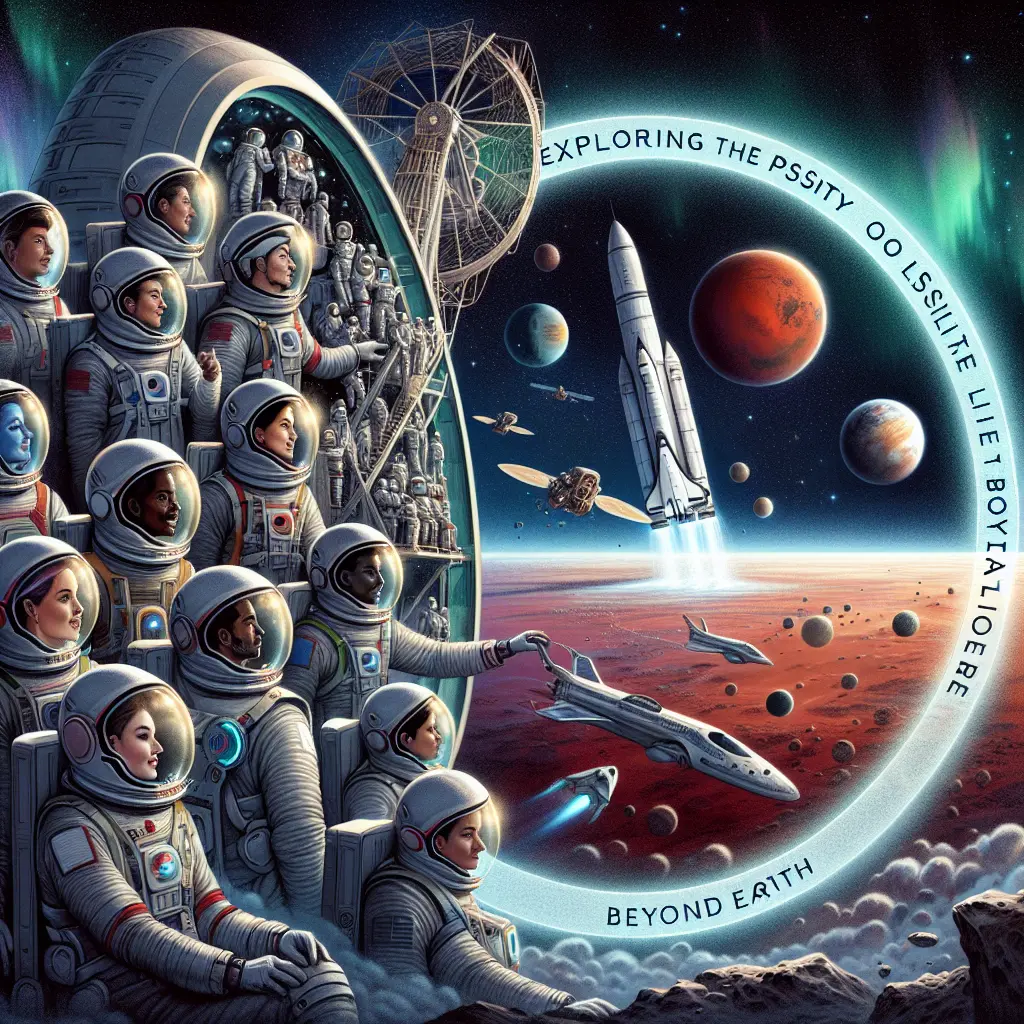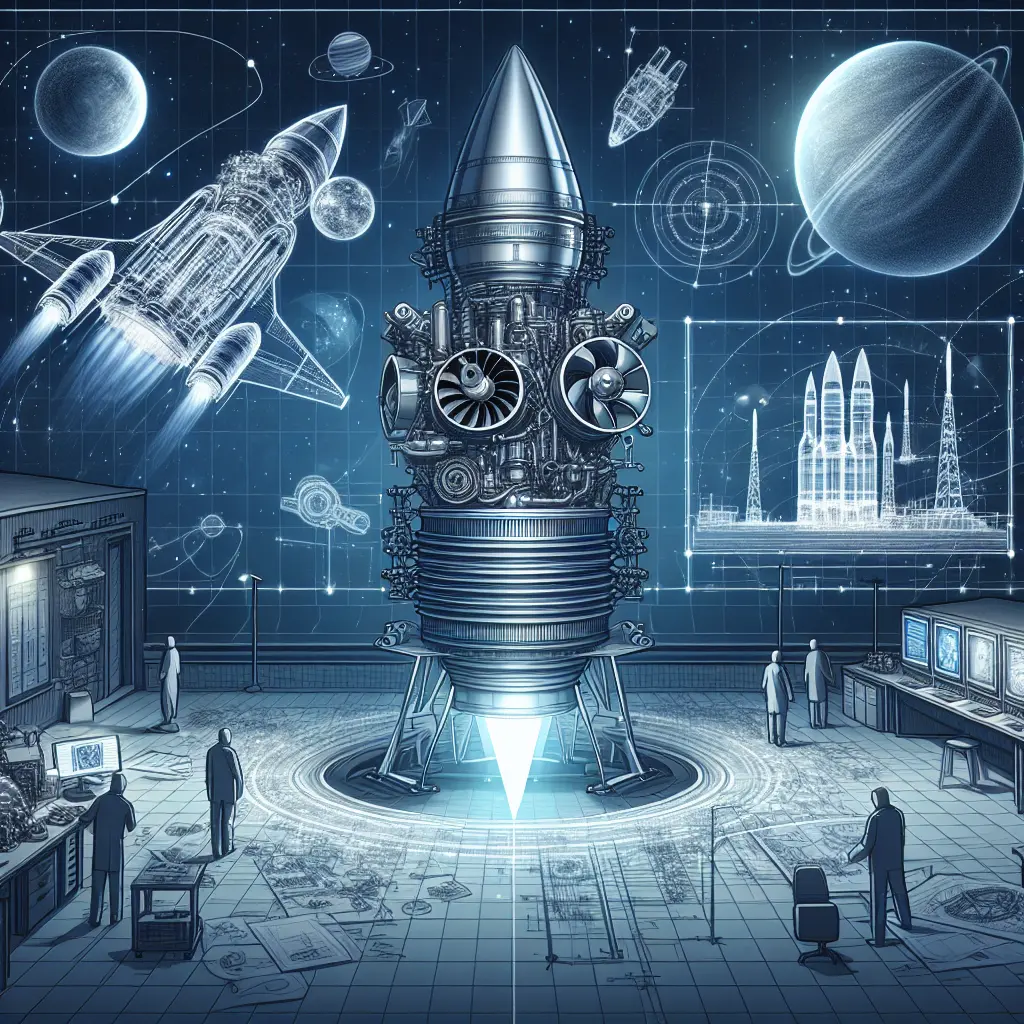As humanity stands on the brink of a new era, SpaceX, led by visionary entrepreneur Elon Musk, is not just revolutionizing space exploration but also paving the way for the burgeoning space tourism industry. With ambitious projects that seem straight out of a sci-fi novel, SpaceX's contributions to space tourism, private space travel, and even interplanetary travel are setting the stage for a future where vacationing among the stars could become a reality for many.
SpaceX has long transcended its initial goal of reducing space transportation costs to enable Mars colonization. It is now actively forging a path for the commercial space travel industry. The introduction of the SpaceX Starship, a fully reusable spacecraft designed for missions to Mars, also holds vast potential for orbital tourism. This innovation is not just about reaching new frontiers but also making space travel accessible and mainstream.
Elon Musk's vision extends beyond conventional aerospace expectations. His projects, including the famed SpaceX Starship, are pivotal in shaping the future of space travel. Musk envisions a multi-planetary human existence, and every SpaceX mission brings us one step closer to this reality. Although recent news highlights challenges in Musk's other ventures, such as the delayed Tesla Robotaxi event and concerns over his political endorsements potentially impacting Tesla’s market, his commitment to space innovation remains unwavering.
The introduction of SpaceX tours into low Earth orbit tourism is a game-changer. The company's successful development and deployment of the Crew Dragon spacecraft, which has already begun ferrying astronauts to the International Space Station (ISS), lays a robust foundation for future space tourism. SpaceX’s plans extend to offering these orbital expeditions to private individuals, potentially transforming the landscape of the space tourism industry.
The concept of commercial space travel has transitioned from a fantastical idea to imminent reality under SpaceX's stewardship. The successful test flights of the SpaceX Starship underscore its viability not just for cargo missions but for carrying tourists beyond Earth. This leap towards commercial viability marks a significant milestone in private space travel, democratizing access to space for non-astronauts.
Global Competition and Economic Impacts
While SpaceX continues to dominate headlines, it’s important to note the global context in which it operates. China’s rapid advancements in technology, as seen with BYD catching up to Tesla in sales, suggest that Chinese enterprises may soon compete in the space tourism sector as well. This competition could spur faster developments and lower prices, further fueling the growth of the space tourism market.
Space adventure tourism isn’t just about the thrill; it’s an emerging economic sector capable of generating substantial revenue. As SpaceX works towards making space travel more affordable, the economic implications are vast. Reduced costs mean increased accessibility, which could make space tourism a significant industry akin to traditional aviation, providing jobs and stimulating global economies.
Looking beyond orbital tourism, SpaceX’s ambitions for interplanetary travel are perhaps the most exhilarating aspect of its projects. The potential of sending humans to Mars is no longer relegated to the distant future. With each iteration and test of the Starship, SpaceX is solving complex logistical and safety challenges associated with long-duration space travel, setting the framework for future missions to Mars and possibly other destinations.
Despite these advances, the journey toward widespread space tourism is fraught with challenges. Safety remains a paramount concern, given the inherent risks of space travel. Moreover, regulatory frameworks are still in development stages, needing to catch up with technological advancements to ensure operations that are not only innovative but also compliant and safe.
Ethical Implications and Environmental Concerns
Space tourism also raises ethical and environmental questions. The impact of frequent launches on Earth’s atmosphere, concerns about space debris, and the moral implications of turning space into a tourist destination are issues that need addressing as the industry matures.
In conclusion, SpaceX's role in shaping the future of space travel and tourism is indelible. From launching the first privately crewed missions into orbit to developing spacecraft for interplanetary journeys, SpaceX is at the forefront of the commercial space race. As we look towards a future where space tourism is as commonplace as international air travel, the implications for humanity are profound—culturally, technologically, and economically.
SpaceX's journey symbolizes more than just technological prowess; it embodies a bold stride towards a collective human dream—the exploration of outer space. As we stand on this frontier, ready to step into what was once unknown, we carry not just the hopes of today’s generation but also the dreams of those who looked up at the stars centuries before us.










Leave a Comment